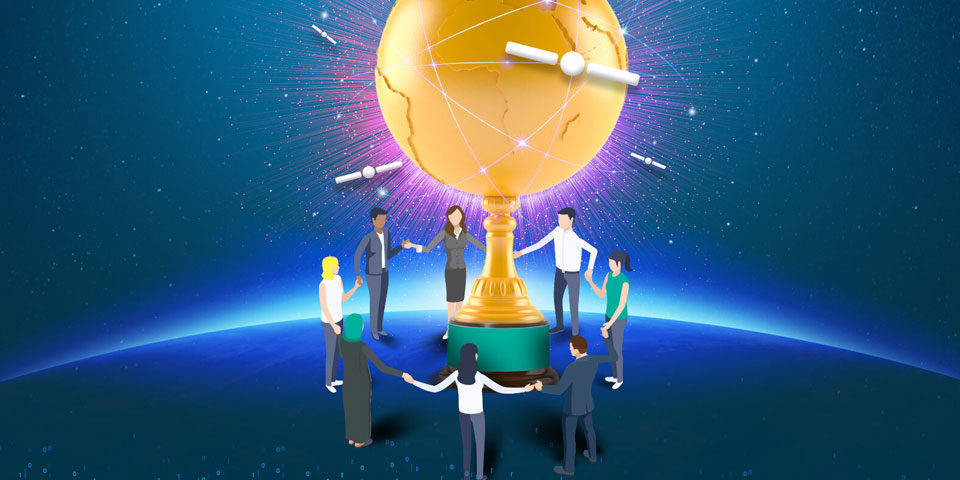Collaborative earth observation initiative recognised for pushing forward the field of conflict and disaster monitoring.

The Decentralized Damage Mapping Group, of which CEOBS is a member, has been awarded the European Space Agency’s 2025 Earth Observation Excellence Award.
Collective research
The Decentralized Damage Mapping Group (DDMG) — an international collective of academics and civil society organisations — has advanced the use of satellite analysis to document the humanitarian and environmental consequences of damage from wars and natural hazard-induced disasters. The group has studied damage to agriculture, built-up areas, forests, water infrastructure and solid waste management in conflict zones including Gaza, Ukraine, Lebanon, Sudan and Syria, as well as fire damage in Los Angeles. Its members’ findings have been widely used by journalists and policymakers.
The group uses publicly available satellite imagery from European Space Agency’s (ESA) Sentinel constellation, NASA’s Landsat and MODIS programs, and commercial satellite data providers, alongside ancillary open-source data. One of the DDMG’s aims is to build the science, practice and partnerships to make damage assessments faster, more accessible, and more useful for response, recovery, and long-term environmental monitoring.
Earth observation for impact
DDMG’s findings have received global media attention, spurred conversations in the humanitarian community, and catalyzed new research for armed conflict impact assessments. With this award, DDMG aims to bolster its methods, develop new research directions and collaborations, and expand its outreach to industry, academic and humanitarian actors. It also seeks to increase the use of remote sensing by civil society in areas affected by conflicts. Improving understanding and awareness of the environmental and humanitarian consequences of conflicts and disasters helps enhance responses and can contribute towards accountability.
“We established DDMG in Fall 2023 to bring together Earth observation experts regardless of academic discipline or sector and collaboratively monitor the impacts of armed conflict on communities and landscapes around the world,” said DDMG co-founder Jamon Van Den Hoek of Oregon State University.
Early career researchers recognised
The 2025 Team award gave particular recognition to five early career researchers in the DDMG, including Dr Lina Eklund from Lund University (Sweden), Dr Eoghan Darbyshire from CEOBS (UK), Dr Marie Schellens of Pax for Peace (Netherlands), and Dr Corey Scher and Dr Jamon Van Den Hoek from Oregon State University (US).
“The DDMG is a very special initiative that gathers people at different career stages and from different professional backgrounds, with the common goal to produce information that can benefit conflict-affected communities, using Earth observation and other geodata,” said Lina Eklund. “The ESA EO Excellence award is a great recognition of the work we have done so far, and will make it possible to continue and expand the work.”
“Working in collaboration is essential to help meet the ongoing challenges and the DDMG is an excellent forum to do this and to help catalyse new and needed research on environmental harms from war,” said CEOBS’ Eoghan Darbyshire. “Having the ESA recognise this is significant and will help lead to better outcomes for people and the planet in conflict settings.” Our Junior Researcher Rob Watson has also represented CEOBS in the group.
The DDMG will receive a grant of up to €65,000 and the award ceremony takes place on 25th June, during the ESA Living Planet Symposium in Vienna, where DDMG members will present their research. Organisational members of the DDMG include: Oregon State University, Kent State University, San Francisco State University, Johns Hopkins University, Lund University, FAU Erlangen-Nürnberg, CEOBS, the Humanitarian Openstreet Map Team and PAX.





